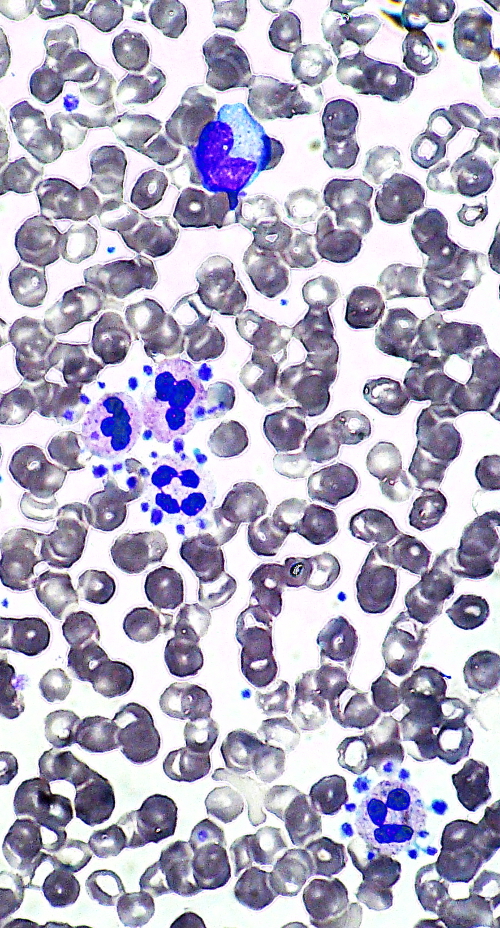Smart slides detect cancer

The innovative microscope slide, NanoMslide, developed at La Trobe University, could revolutionise medical imaging.
Researchers have demonstrated that it can be used to detect breast cancer cells in patients.
It comes after they discovered that by modifying the surface of conventional microscope slides at the nanoscale, biological structures and cells take on a striking colour contrast which can be used to detect disease.
“Current approaches to tissue imaging often rely on staining or labelling cells in order to render them visible under the microscope,” says project lead, Professor Brian Abbey.
“Even with staining or labelling, it can be challenging for pathologists to detect cancer cells, with the risk that some samples are misdiagnosed, particularly during the very early stages of disease.
“Recent breakthroughs in nanotechnology have allowed us to manipulate the interaction of light with biological tissue so that abnormal cells appear to have a different colour to healthy ones.
“Comparing images from our slides to conventional staining is like watching colour television when all you’ve seen before is black and white.”
Co-lead researcher Associate Professor Belinda Parker says current techniques can mean it is difficult to distinguish early forms of breast cancer from benign lesions, particularly when there are not many abnormally-shaped cells in a complex tissue.
The NanoMslide makes such a diagnosis much easier.
“When I first looked at a tissue under the microscope on the NanoMslide, I was incredibly excited,” said Associate Professor Parker.
“For the first time I saw cancer cells just popping up at me. They were a different colour from the surrounding tissue, and it was very easy to distinguish them from surrounding cells.”
Associate Professor Parker believes the NanoMslide will complement existing stains currently in use, to allow for more consistent cancer diagnoses.
“Based on our preliminary findings with the NanoMslide, we think this platform could be really useful in early breast cancer diagnosis, but also in other cancers where we're really just trying to pick up a few cancer cells in a complex tissue or a blood sample.”
The development of the slide technology was assisted in large part by the open access equipment and expertise at the Melbourne Centre for Nanofabrication, the flagship facility of the Victorian node of the Australian National Fabrication Facility (ANFF-VIC).
The research team will work with MCN and the national ANFF network as they start producing their slides in much larger quantities to enter the market and to tackle a wide range of medical as well as non-medical imaging problems.







 Print
Print